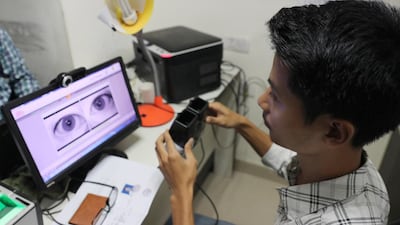Most of us see innovation as the realm of tech entrepreneurs and the companies they build – the likes of Google, Facebook and Tesla. But it is government that has given us many of the world’s boldest inventions, from vaccines and wind power to the internet and space exploration.
As the annual World Government Summit demonstrates, innovation is becoming the norm in governments big and small, all over the world. At the summit, policymakers will be gathering to discuss the tools they need to solve the challenges of the future, from the threat of automation to fast-escalating climate change.
With trust in government at an all-time low in many countries, it's more important than ever to replace archaic, bureaucratic systems and services with better ones. But how can governments best harness innovation, not just at at the highest levels but throughout the public sector? And what does innovation really mean in the government context?
In the private sector, innovation is synonymous with invention. It's about disruption, blue-sky thinking and, often, flashy technology.
And from India's digital ID, a national biometric database launched in 2009 to streamline welfare services and cut public spending, and Estonia's data embassy, the world's first virtual embassy for data stored in a privately owned but publicly accessible cloud, to Singapore's robotic police force, it's technocentric innovations that grab headlines in the public sector too.
But there’s much more to innovation in government than just these big-ticket tech projects. Indeed, one of the most misleading assumptions about government innovation is that it must involve complex technology. That gives everyday public servants the impression that innovation is unattainable.
This isn’t to say government should never try anything completely new, nor use technology to tackle social problems. Tech has helped tackle a number of such issues, from curing malaria to combating air pollution and curbing loneliness.
It’s just that often, there are simpler, tried-and-tested fixes out there. It’s when policymakers use technology or reinvent policies just for the sake of it that they waste time and money.
Great innovation might lie in simply changing how those in the public sector work — by axing outdated processes or re-engineering risk-averse culture.
Finland, for example, wanted to encourage more innovation in its government but realised that fear of failure was holding most public servants back. It factored funding for experimentation into its national budget, building collaboration networks and idea accelerators where the message was clear: all civil servants have licence to experiment.
Giving public sector workers that protection to take risks has started to create a culture where innovation is the norm for all. Canada, which has integrated innovation funding into its federal budget, has taken a similar approach.
And while most would say that for a policy, intervention or approach to be innovative, it has to be new, government innovation can also mean building and improving upon solutions that already exist.
Research conducted by the Danish government, often cited as one of the most inventive in the world, found that 73 per cent of innovations introduced by its public servants are inspired by or copied from other departments.
It may seem like a contradiction: copying someone else's policy and calling it innovation. But as one of the researchers in charge said: "You can't fully grasp public sector innovation looking through the same lens as you would the private sector." The easiest way for policymakers to innovate, they found, is by reproducing a solution that works. (While, of course, tailoring it to their own context.)
It’s not just Denmark – governments all over the world are replicating solutions proven to have worked elsewhere. The UK’s Government Digital Service, for example, shared code and lessons from its successful digital transformation process with New Zealand to help it get a head start with providing online public services.
After all, a single-minded focus on novelty can be counter-productive. Governments might spend millions redesigning government websites that don't work. They might axe schools' arts and sports programmes to pay for tablets with few proven educational benefits. Some use artificial intelligence in courtrooms to save time, only to find out that they can discriminate against minorities.
Regardless of how they’re achieved, the best government innovations take a system that’s hard, slow or inefficient and make it easy to use while having an impact.
And they should focus on what citizens want and need, not necessarily what looks flashiest. This might mean working on simple ways to improve roads, hospitals and schools, rather than using the latest application of blockchain or artificial intelligence.
The biggest stumbling block of government is the inability to learn from itself. Better lesson-sharing, storytelling and evidence-building are key to changing that. The less policymakers get distracted by the private sector’s twin pillars of innovation – technology and novelty – the better they’ll be able to serve citizens.
Jennifer Guay is the government innovation editor for Apolitical, an online platform about government initiatives

